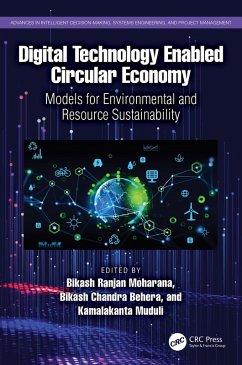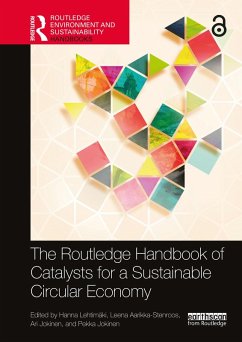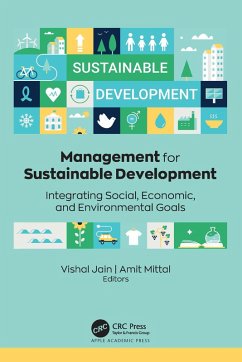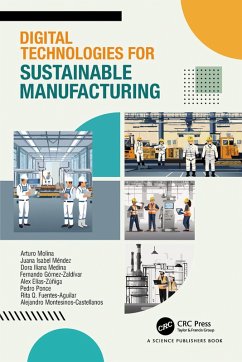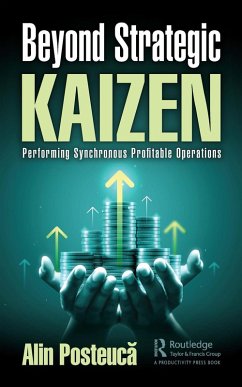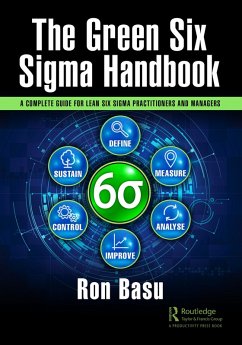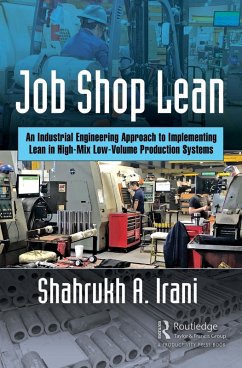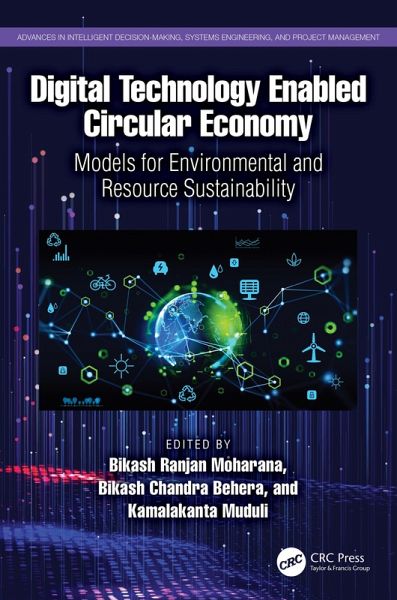
Digital Technology Enabled Circular Economy (eBook, ePUB)
Models for Environmental and Resource Sustainability
Redaktion: Moharana, Bikash Ranjan; Muduli, Kamalakanta; Behera, Bikash Chandra
Versandkostenfrei!
Sofort per Download lieferbar
52,95 €
inkl. MwSt.
Weitere Ausgaben:

PAYBACK Punkte
26 °P sammeln!
This book presents cutting-edge findings that draw on the use of AI, the Industrial Internet of Things, Blockchain, and Co-Analytics for the development of Circular Economy (CE) models to make organizational activities more sustainable. A further goal is the development of Digital Technology (DT)-enabled support tools that can be used to further analyze the impact of DT and CE-enabled operational practices used to achieve resource and environmental sustainability.Digital Technology Enabled Circular Economy: Models for Environmental and Resource Sustainability discusses the integration of digit...
This book presents cutting-edge findings that draw on the use of AI, the Industrial Internet of Things, Blockchain, and Co-Analytics for the development of Circular Economy (CE) models to make organizational activities more sustainable. A further goal is the development of Digital Technology (DT)-enabled support tools that can be used to further analyze the impact of DT and CE-enabled operational practices used to achieve resource and environmental sustainability.
Digital Technology Enabled Circular Economy: Models for Environmental and Resource Sustainability discusses the integration of digital technology-enabledcircular economy models into the manufacturing industries and its advantages for sustainability. It emphasizes the fundamentals and applications and their enactment, as well as integration for the overall organizational development. The book explains the role of digital technologies in food supply chains and multi-life cycle materials for sustainable development and highlights the development of the workforce to facilitate the implementation of smart and advanced technologies. This book presents the development of DT-enabled support tools used to analyze the impact of DT and CE-enabled operational practices on an organization and efforts to achieve resource and environmental sustainability. Case studies that demonstrate how smart digital technology can help firms improve their long-term performance by embracing circular operation methods are also included.
Students, academicians, and researchers, as well as managers and stakeholders who are interested in smart, sustainable production, and consumption, together with managers and stakeholders who are interested in ways of implementing them in their organizations, will find this book of interest. It will demonstrate, via the use of real-world case studies, how smart digital technology can help firms improve their long-term performance by embracing circular operating methods.
Digital Technology Enabled Circular Economy: Models for Environmental and Resource Sustainability discusses the integration of digital technology-enabledcircular economy models into the manufacturing industries and its advantages for sustainability. It emphasizes the fundamentals and applications and their enactment, as well as integration for the overall organizational development. The book explains the role of digital technologies in food supply chains and multi-life cycle materials for sustainable development and highlights the development of the workforce to facilitate the implementation of smart and advanced technologies. This book presents the development of DT-enabled support tools used to analyze the impact of DT and CE-enabled operational practices on an organization and efforts to achieve resource and environmental sustainability. Case studies that demonstrate how smart digital technology can help firms improve their long-term performance by embracing circular operation methods are also included.
Students, academicians, and researchers, as well as managers and stakeholders who are interested in smart, sustainable production, and consumption, together with managers and stakeholders who are interested in ways of implementing them in their organizations, will find this book of interest. It will demonstrate, via the use of real-world case studies, how smart digital technology can help firms improve their long-term performance by embracing circular operating methods.
Dieser Download kann aus rechtlichen Gründen nur mit Rechnungsadresse in A, B, BG, CY, CZ, D, DK, EW, E, FIN, F, GR, HR, H, IRL, I, LT, L, LR, M, NL, PL, P, R, S, SLO, SK ausgeliefert werden.




